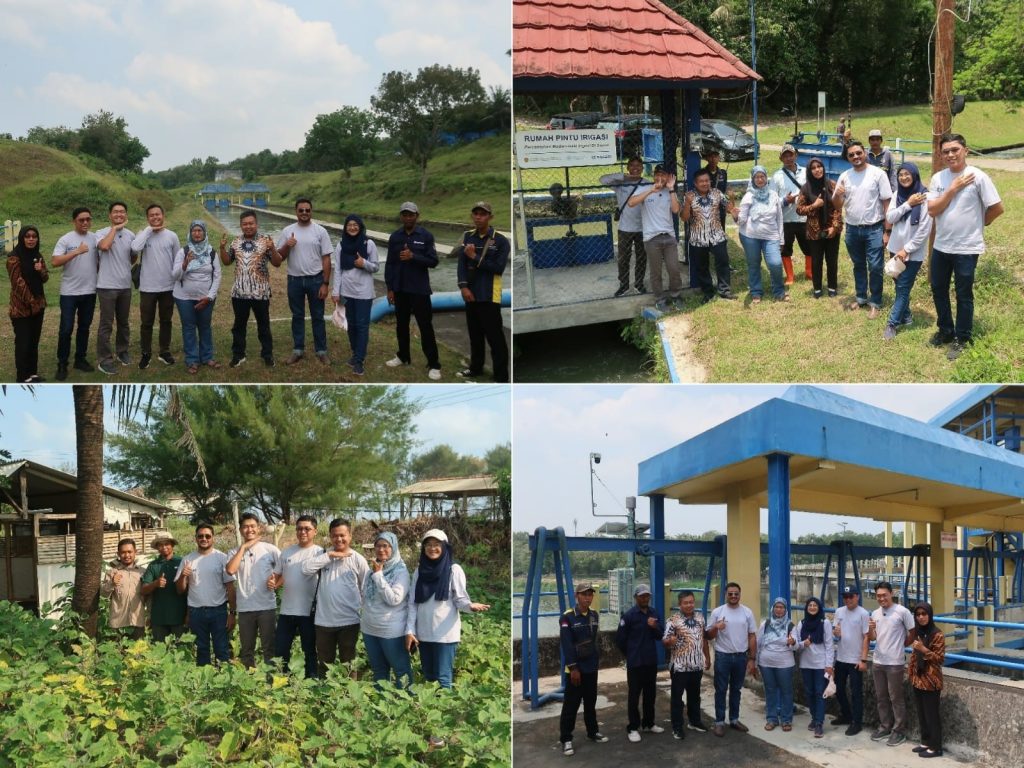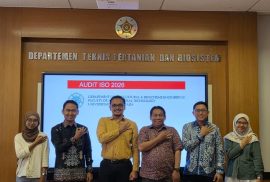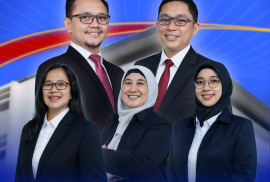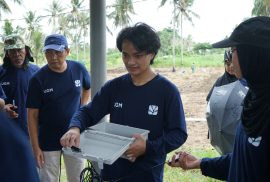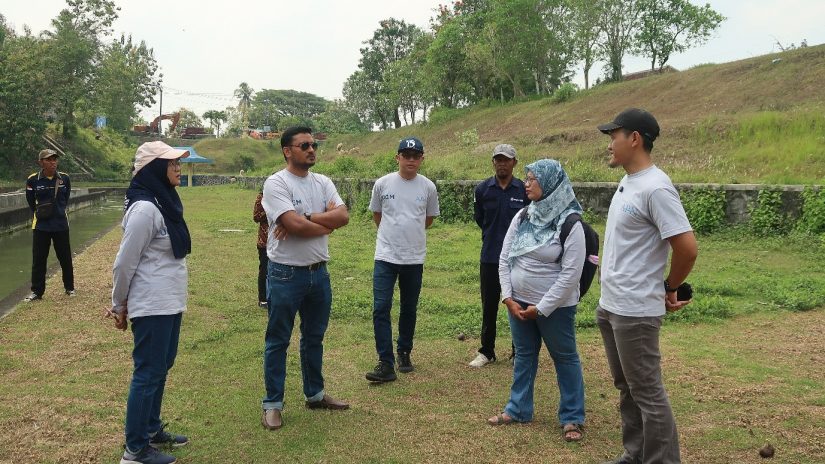
Yogyakarta, 25 September 2025 – The Collaborative Regional Research Programme–Asia Pacific Network for Global Change Research (CRRP–APN) team from the Department of Agricultural and Biosystems Engineering (DTPB), Faculty of Agricultural Technology, Universitas Gadjah Mada (FTP UGM), carried out a field visit with Dr. Sushil Kumar Himanshu from the Asian Institute of Technology (AIT), Thailand. On this occasion, Dr. Sushil was accompanied by several DTPB faculty members, namely Dr. Murtiningrum, Dr. Chandra Setyawan, Dr. Andri Prima Nugroho, and Dr. Ansita Gupitakingkin Pradipta.
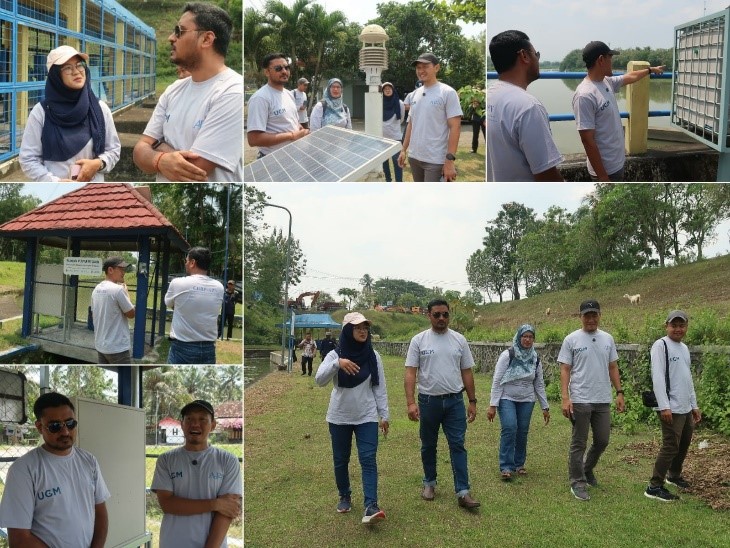
The visit began at Sapon Weir to observe the implementation of irrigation modernization in the Sapon Irrigation Area. The system has been equipped with motorized intake gates and the Automatic Water Level Monitoring System (AWLMS), developed by the SIPASI UGM (Irrigation Management System) team. AWLMS is integrated with a decision support system, enabling efficient monitoring of water levels while providing predictive capabilities by comparing current and historical data. This technology offers valuable insights for policymakers in making more accurate and sustainable water allocation decisions in irrigation areas. In addition, the team also observed a pilot site where the system is applied at a water gate capable of adjusting water distribution volumes according to agricultural needs.
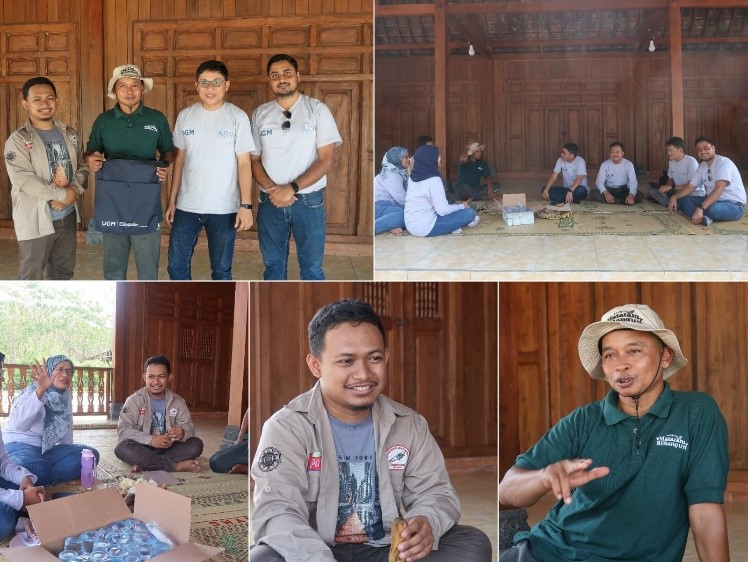
The activity continued with a visit to sand-based farming areas at Samas Beach, Bantul, managed by partner farmers of DTPB FTP UGM. In this area, mist, drip, and sprinkler irrigation systems are applied. These systems provide several advantages, including: optimizing water distribution directly to the root zone, reducing water loss due to evaporation, and maintaining stable soil moisture around crops. As a result, the system not only supports better crop growth in marginal land such as sandy areas but also promotes sustainable agricultural practices through efficient water resource use.
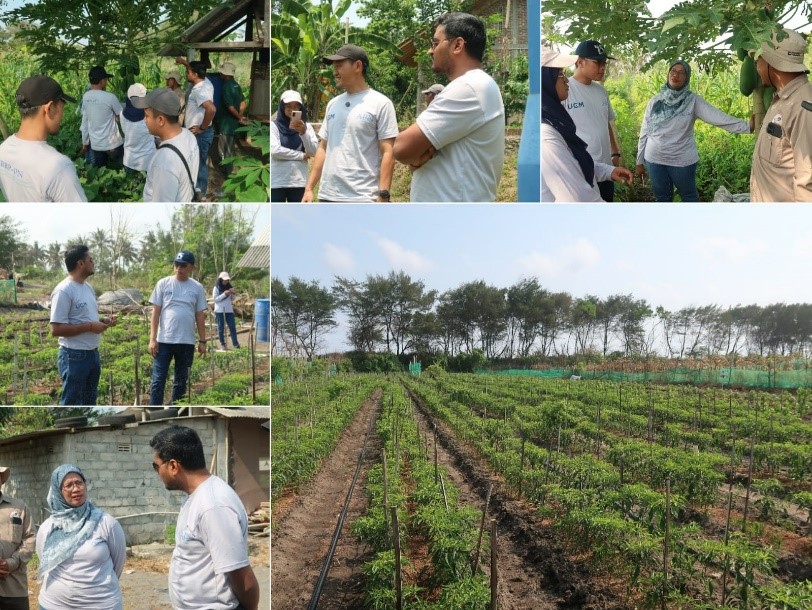
This field visit is closely aligned with several SDGs, including:
-
SDG 2 (Zero Hunger): supporting food security through sustainable agricultural technology innovations;
-
SDG 6 (Clean Water and Sanitation): optimizing water resource management for efficient irrigation;
-
SDG 9 (Industry, Innovation, and Infrastructure): advancing the use of modern technology in irrigation systems;
-
SDG 13 (Climate Action): adapting to the impacts of climate change with smart irrigation systems;
-
SDG 17 (Partnerships for the Goals): strengthening international collaboration in agricultural research and technology development.
Through this field visit, DTPB FTP UGM aims to continue demonstrating its competence and tangible contributions to the development of smart irrigation technologies relevant to global challenges. Furthermore, this activity is expected to strengthen international research networks while providing direct benefits to partner farmers in managing their land more productively, efficiently, and sustainably.
